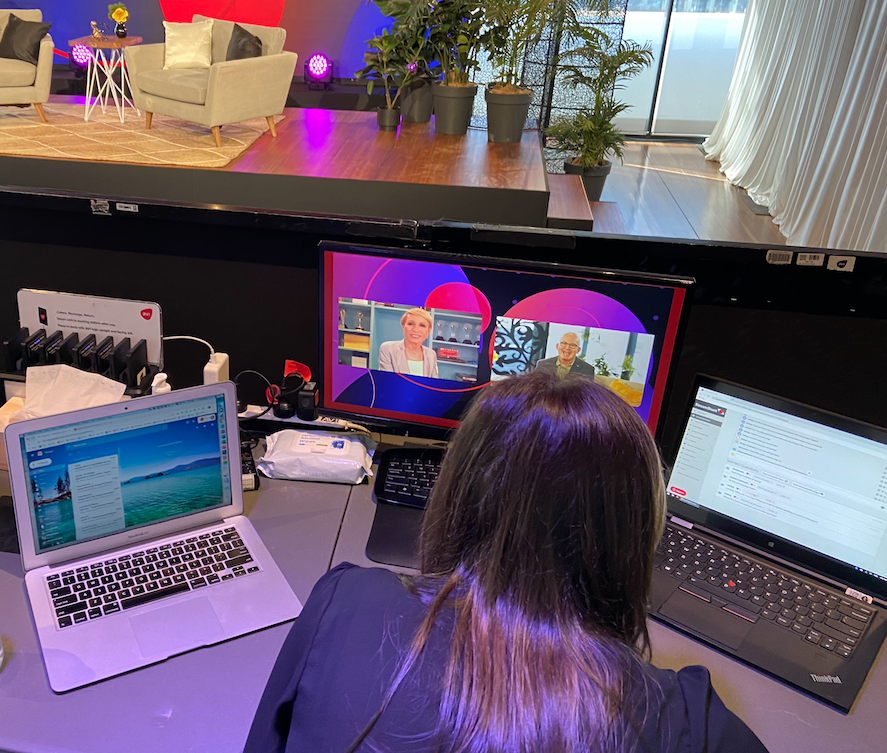Our Top 5 Lessons In Running Virtual Events So Far
Before COVID came into our lives, we were the experts in knowing the speakers, MC and talent market – in relation to conference and events. We provided our clients with the best possible speaker and talent options for their events, conferences or awards nights.
However, since mid-March we’ve also learnt a lot about producing virtual events.
We know this for 2 reasons:
- We’ve run 2 of our own virtual speaker events for our clients in the last 3 months (and we’ve also sponsored speakers for the Events Industry national conference on July 16th, which is a virtual event)
- We’ve worked on a number of our client’s virtual engagements recently
It’s safe to say that the industry as a whole is still getting used to the new formats when it comes to events – but here are the top 5 lessons we’ve learnt so far in running and assisting in virtual events:
-
Lesson 1 : Tech Rehearsal’s are a MUST
Zoom can seem so easy – just click the link and you’re in – so you can understand how people can underestimate the importance of rehearsing that the technology works like it should, intro, slides, lighting etc on the lead up to an event. But it is SUPER IMPORTANT. And even if you think a tech rehearsal 4 days prior and again on the morning of the event is overkill – DO IT – you’ll be surprised at how many seemingly small details on either end of the screen or audio can potentially ruin the whole event.
-
Lesson 2 : Choose an MC that is easy to work with
The MC with any event – live or virtual – is the person who has the most face time in front of the audience and hence has THE MOST influence over how an event will go (but often they are the last decision that is made in producing an event). Given that virtual events are a lot more work behind the scenes – I’d suggest you choose a super engaging MC, with broadcast experience that has the patience of a saint. For our 3 virtual events we worked with Shelly Horton, Andrew Klein and Dave Thornton and I couldn’t be more grateful for their skills and expertise off the camera as well as on it.
-
Lesson 3 : Fight for brevity and make it as interactive as possible
Our attention spans as humans have gotten shorter and shorter as more distractions (namely from our increasingly talking phones!) have come into our lives. So grabbing an audience’s attention that is remote, surrounded by distractions at home and can engage in those distractions without any social consequences is very hard to do. Best to keep the presentation to no more than 30 mins, 40 mins max and have the rest of the session as a Q&A.
-
Lesson 4 : Call the show and have a Plan B
When you run a live conference, you’ll often have the Event Manager sitting on the production desk ‘calling the show’. You should do the exact same for a virtual event. Have a run sheet broken down to the minute and over communicate to the speakers, AV and the rest of the team. Also, if you’re running a live virtual event – have a Plan B – e.g. a couple of go to questions or comments for the MC to use in the unlikely event that the feed drops or the next speaker is making a cup of tea at home when they’re meant to be live on screen.
-
Lesson 5 : Communicate lots
Communicate lots to your audience. Send them reminders on the lead up to your event. Make the reminders fun and engaging e.g. a video message from a speaker. Let them know any specific tech requirements before the day (e.g. you need to use Chrome, or download an app, use a password etc). Send these details at least twice – we’ve had people reply to emails containing the password asking ‘’what’s the password?’’. So let them know the details multiple times!
Hope this helps!
If you’ve got anything you need help with your event, please contact me any time on 0450 077 997 or email [email protected]
